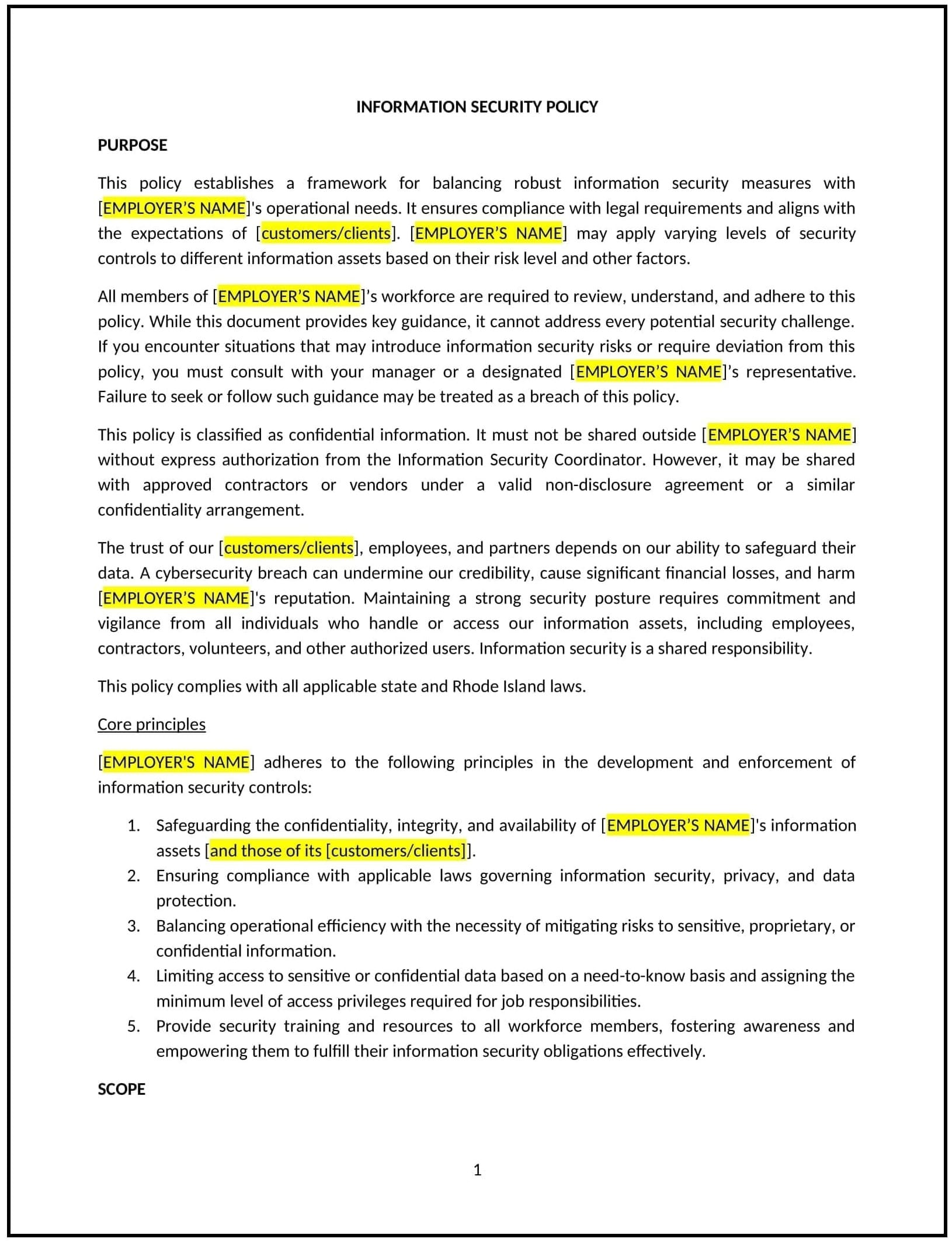Information security policy (Rhode Island): Free template
Got contracts to review? While you're here for policies, let Cobrief make contract review effortless—start your free review now.

Customize this template for free
Information security policy (Rhode Island)
This information security policy is designed to help Rhode Island businesses protect sensitive data from unauthorized access, breaches, or misuse. It outlines procedures for data handling, access controls, and incident response.
By adopting this policy, businesses can safeguard sensitive information, comply with data protection laws, and align with best practices for cybersecurity.
How to use this information security policy (Rhode Island)
- Define sensitive data: Specify what constitutes sensitive information, such as customer data or financial records.
- Establish access controls: Outline procedures for granting and revoking access to sensitive data.
- Address data handling: Provide guidelines for storing, transmitting, and disposing of sensitive information.
- Train employees: Educate staff on the policy and their roles in protecting data.
- Review and update: Assess the policy annually to ensure it aligns with evolving business needs and legal standards.
Benefits of using this information security policy (Rhode Island)
This policy offers several advantages for Rhode Island businesses:
- Protects sensitive data: Reduces the risk of data breaches or unauthorized access.
- Ensures compliance: Aligns with data protection laws, such as GDPR or CCPA, minimizing legal risks.
- Enhances trust: Demonstrates to customers and stakeholders that the business prioritizes data security.
- Reduces costs: Minimizes the financial impact of data breaches or cyberattacks.
- Aligns with best practices: Supports adherence to cybersecurity standards.
Tips for using this information security policy (Rhode Island)
- Communicate the policy: Share the policy with employees and include it in training programs.
- Provide training: Educate employees on data protection practices and their roles in maintaining security.
- Monitor compliance: Regularly review data handling practices to ensure adherence to the policy.
- Address issues promptly: Take corrective action if data breaches or security vulnerabilities are identified.
- Update regularly: Assess the policy annually to ensure it aligns with evolving business needs and legal standards.